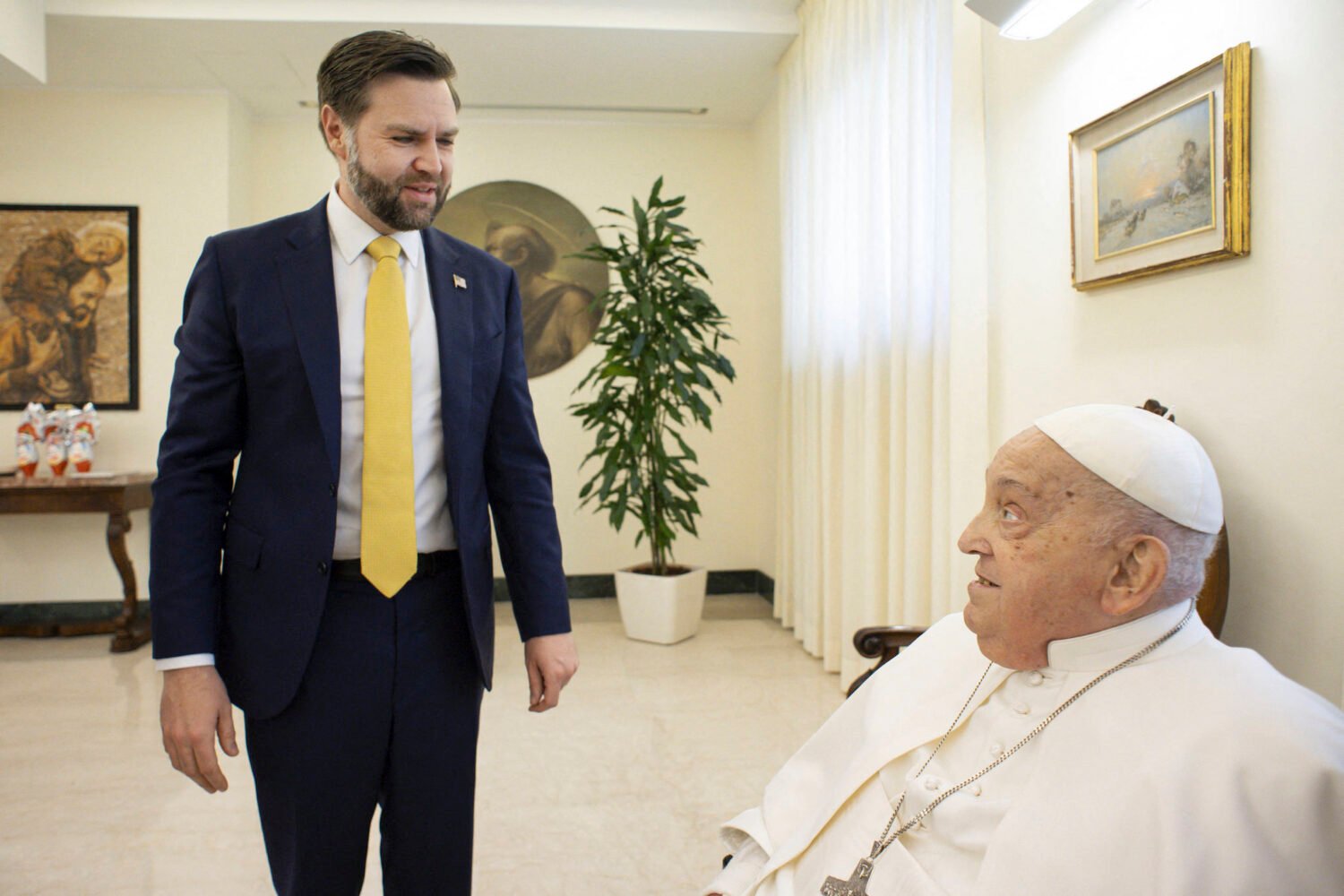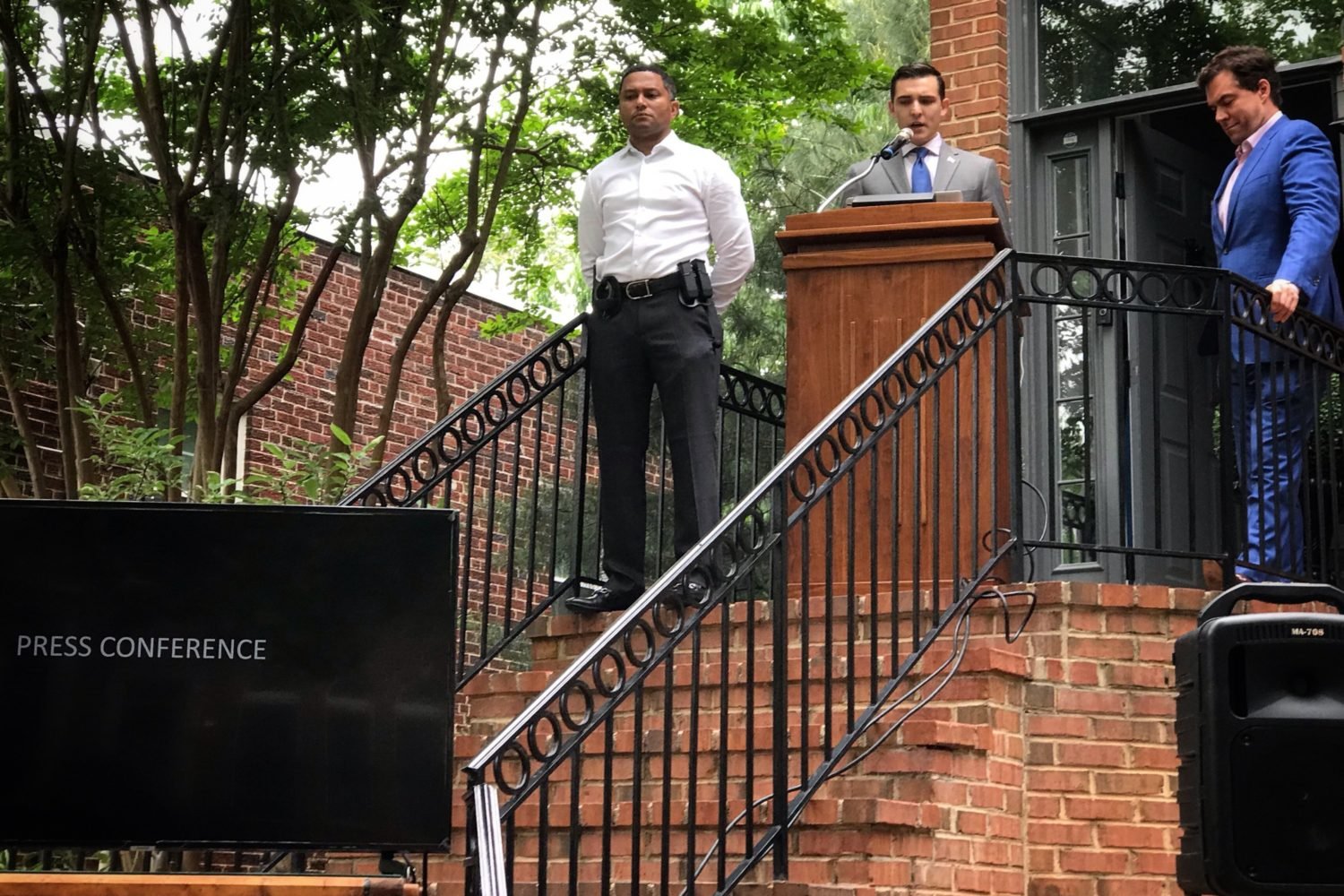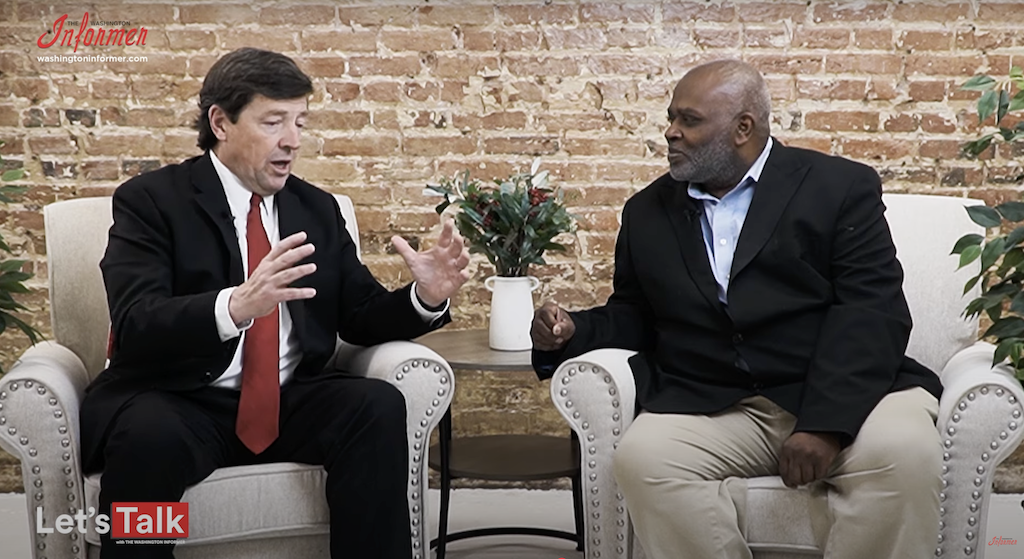DCist has been shut down. Its owner, WAMU, broke the bad news to staffers Friday. A banner appeared over DCist’s homepage Friday morning that says that the site “will no longer publish new content. It advises readers to “visit WAMU.org for local news and programming.” DCist’s archive is unavailable to the public at the moment, though American University, which owns WAMU, says in a press release that staffers will be able to access an archive of their stories “to support their professional pursuits.”
WAMU management gifted Axios an “exclusive” report that says 15 layoffs will accompany the closure. The story’s publication appears to have been timed to coincide with an all-staff meeting Friday morning. Several staffers tell Washingtonian they found out about the layoffs via the Axios story. General manager Erika Pulley-Hayes appeared to be reading from a script and didn’t take questions during the terse meeting, staffers say, and the meeting lasted less than ten minutes.
AU’s press release describes the cuts as “a new strategy to deepen engagement with Washingtonians” that will be “centered around audio and live experiences.” It plans to create “a new local show, for, by, and about Washingtonians” and intends to “partner with local content providers to amplify their stories and connect audiences with a variety of rich experiences.” AU has not yet replied to a request for an interview to learn what any of that means. Reached by phone, WAMU’s switchboard played a recording Friday morning saying the station was unable to answer calls. Washingtonian left a voice message asking Pulley-Hayes to call back.
Termination e-mails went out Friday morning, newsroom sources tell Washingtonian, and laid-off employees, they say, will receive two weeks’ severance. WAMU’s contract with its union provides “four (4) weeks’ notice or pay in lieu thereoff” in the event of layoffs.
Pulley-Hayes told Axios that the station would “shift away from digital publishing,” allowing WAMU “to focus on its core radio products.” Staffers describe Pulley-Hayes as a manager not entirely in tune with the staff’s news output, and say she regularly mispronounced their last names, an oddity in a medium where reporters are required to pronounce them on-air. She often told them she prized work that was “fun, family-oriented, and free,” a rubric staffers began to refer to as “The three Fs.” A new “content strategy” has supposedly been in the works for a long time, but staffers were not able to find out much about it until Friday.
As Washington Post reporter Elahe Izadi first reported Thursday evening, staffers received an e-mail Thursday afternoon from Pulley-Hayes that announced the office would close Friday and the station would be temporarily run by automation and that an all-staff meeting at 9 AM would discuss the station’s “new strategic framework.” Employees told Washingtonian they’d been locked out of digital tools like Google Drive and the station’s CMS. The Friday edition of the “Politics Hour” was hurriedly canceled as well.
Many current beats are already vacant. WAMU/DCist have lacked a transportation reporter, a reporter covering Maryland politics, and an education reporter for months. More beats are about to be mothballed. Héctor Alejandro Arzate, who covered immigrant communities for the organization, said on Twitter that he was among the people laid off. Jenny Gathright, who covered criminal justice, has also said she was laid off. Jacob Fenston, who covered environmental issues, says he was among the layoffs.
The cuts extend beyond reporters: Rebecca Cooper, who edited arts and food coverage, tweeted Friday that she’d been laid off. Audience editor Abbey Monsour also tweeted that she’d been laid off. Growth editor Chris Chester announced he is among those who are leaving. Partnerships editor Eric Falquero said he was laid off, too.
On Twitter, WAMU’s union says that “poor leadership has led us to this moment” and questioned management’s stated pursuit of “audio excellence,” noting that audio journalists were among the more than a dozen people who got the ax.
A newsroom staffer for WAMU tells Washingtonian that “leadership doesn’t understand the value of local” journalism. Staffers, this person says, understood the station was undergoing financial difficulties and “wanted to work with leadership” to find compromises, but says “they did not reciprocate at all. They did not show the same level of respect.” This person characterized the station’s handling of the situation as “poor, awful, and not community-first.”
DCist was originally owned by the company Gothamist. Joe Ricketts, the billionaire who bought it in 2017, shut down the site that same year after employees voted to unionize. (One reason, a spokesperson claimed: “The decision by the editorial team to unionize is simply another competitive obstacle making it harder for the business to be financially successful.”) The next year, two anonymous donations allowed WAMU to buy DCist. The idea, its then content boss Andi McDaniel told Washingtonian, was for WAMU to learn from DCist’s digital savvy and operate the two newsrooms in tandem.
This story will be updated.


















